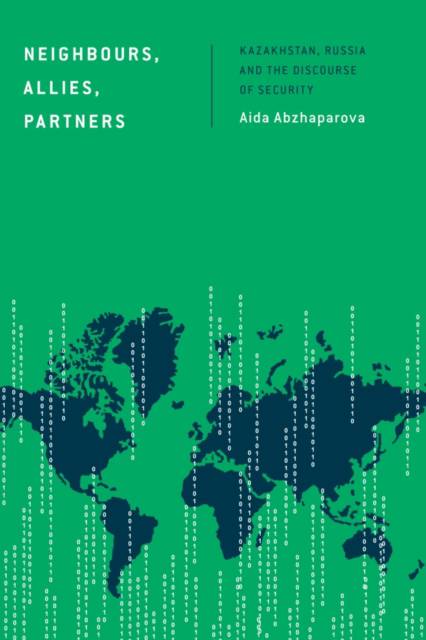
Door een staking bij bpost kan je online bestelling op dit moment iets langer onderweg zijn dan voorzien. Dringend iets nodig? Onze winkels ontvangen jou met open armen!
- Afhalen na 1 uur in een winkel met voorraad
- Gratis thuislevering in België vanaf € 30
- Ruim aanbod met 7 miljoen producten
Door een staking bij bpost kan je online bestelling op dit moment iets langer onderweg zijn dan voorzien. Dringend iets nodig? Onze winkels ontvangen jou met open armen!
- Afhalen na 1 uur in een winkel met voorraad
- Gratis thuislevering in België vanaf € 30
- Ruim aanbod met 7 miljoen producten
Zoeken
€ 165,45
+ 330 punten
Omschrijving
Kazakhstan was the last country to declare independence following the dissolution of the Soviet Union in 1991. How has Kazakhstan constructed a relationship with Russia since then? How has Kazakhstan constructed its identity in relation to Russia? What discursive practices have come into play in order to avoid conflict? Focusing on official discourse, Neighbours, Allies, Partners argues that the relationship between Kazakhstan and Russia has been constructed in order to render conflict impossible. It analyses how political elites constructed the state's identity, represented security threats, and represented Russia. It investigates the implications of these representations regarding the security of Kazakhstan, and the country's relations with Russia. In doing so it illustrates the significance of the construction of identities, representations and meanings in relationships between states.
Specificaties
Betrokkenen
- Auteur(s):
- Uitgeverij:
Inhoud
- Aantal bladzijden:
- 208
- Taal:
- Engels
- Reeks:
Eigenschappen
- Productcode (EAN):
- 9781783488971
- Verschijningsdatum:
- 1/02/2021
- Uitvoering:
- Hardcover
- Formaat:
- Genaaid
- Afmetingen:
- 152 mm x 229 mm

Alleen bij Standaard Boekhandel
+ 330 punten op je klantenkaart van Standaard Boekhandel
Beoordelingen
We publiceren alleen reviews die voldoen aan de voorwaarden voor reviews. Bekijk onze voorwaarden voor reviews.











